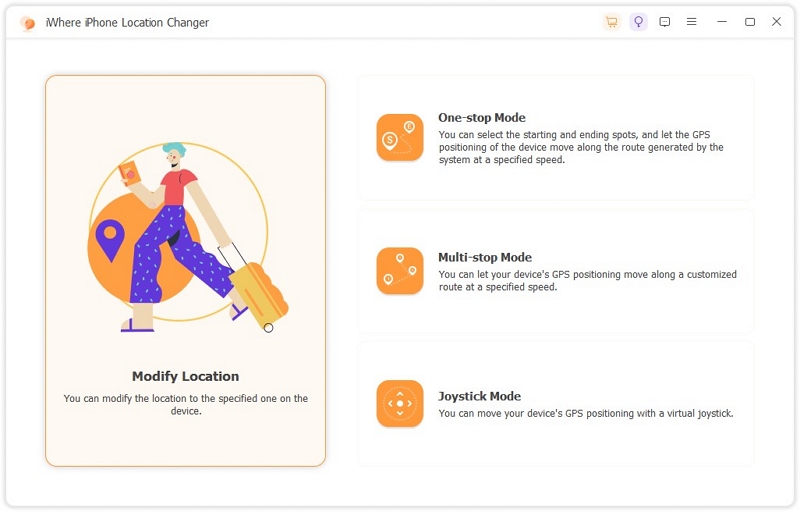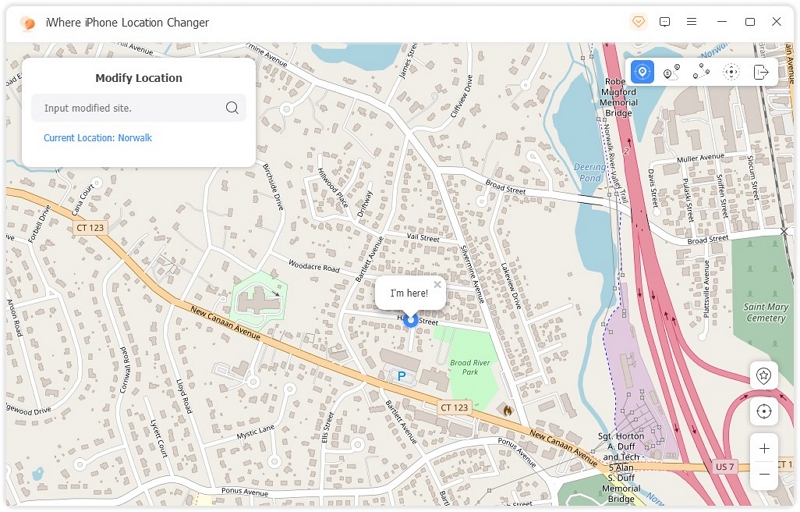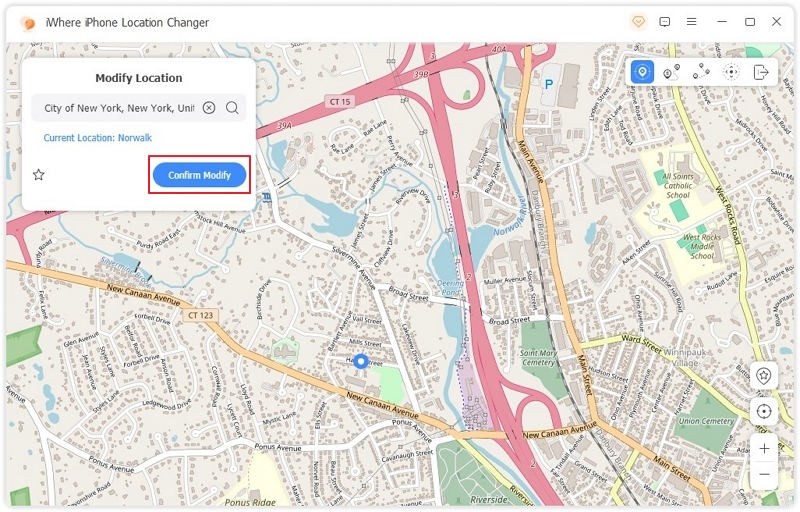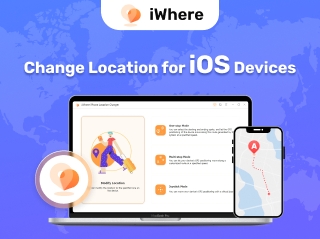Updated on 2024-07-11
1725 views
5min read
Many companies have sensible policies that require tracking employee phones during work hours for safety reasons. However, some employers overstep boundaries and continue tracking your personal phone even during off-hours. If you suspect your employer might be crossing the line, and you’re worried about what else they might be seeing on your phone (like calls, messages, photos, etc.), this guide is for you.
We’ll help you answer the question “can my employer track my personal phone location” to determine if your employer is tracking your location (and potentially more data). You’ll discover their reasons — if they are legitimate or questionable. Importantly, you’ll learn how to prevent unwanted tracking and even spoof your location if company policies mandate location-tracking. Scroll down to get your privacy back!
Part 1: Can My Employer Track My Personal Phone Location?
Yes, there are several ways your employer might be able to track your location, even when you’re using your personal phone. Here’s a breakdown of the most common methods:
Company-Provided Devices:
- Built-in GPS: Most modern smartphones have highly accurate GPS tracking technology. If your employer gives you a phone, they likely have administrative control that allows them to track your location.
- Mobile Device Management (MDM) Software: Office-issues devices often use MDM software to remotely manage and secure company-owned devices. Many MDM software come with location tracking features.
- Malicious Spyware: In rare and unethical cases, your employer might have installed hidden tracking software (spyware) on your phone and track your location without your knowledge.
- Network Monitoring: Your employer could also be monitoring your internet activity. This includes seeing the websites you visit, apps you use, and potentially the files you download. Even if your employer can’t track your location directly, they might get clues based on your online activity.
Apps Installed On Your Phone:
- Apps with Permission to Access Location: If your employer requires you to install a specific app on your personal phone, it could be designed to track your location. These apps acquire your permissions to track device’s GPS and other location-relation data during installation, giving a way for your employer to monitor your location.
The legality of employer tracking varies depending on the company policy. So, ensure to check your employment contract. Plus, be mindful of the apps you install and the permissions you grant.
Part 2: How To Prevent Your Employer From Knowing Your Phone Location
If you’ve determined that your employer’s tracking is overreaching or a violation of your privacy, the best thing you can do to take control of your privacy is to spoof your device’s original location. All you need is a tool like the iWhere iPhone Location Changer app.
iWhere is location-spoofing software designed to mask your true location by providing a fake GPS signal for your iPhone. It utilizes sophisticated GPS technology to enable you to discreetly spoof your location without having to root or jailbreak your device.
Another interesting thing about iWhere is its extensive features. It supports four different location-faking modes, importation and exportation of GPX files, location history, customizable speed, and lots more that you can use to enhance your overall location spoofing experience.
Key Features
- Alter your iPhone’s GPS location with just a click by selecting a new spot on a map.
- Various modes like One-Stop mode and Multi-Stop mode allow you to create custom routes and even set designated stops.
- Fake walking, cycling, or driving at realistic speeds (ranging from 1m/s to 50 m/s).
- Flexible joystick allows you to enjoy 100% precision in controlling your movement when playing AR games like Pokemon GO.
Steps to Spoof Your iPhone Location with iWhere:
Step 1: Open the iWhere software on your computer and connect your iPhone the computer. Then, click on “Start”.
Step 2: Click the "Modify Location" mode. This mode allows you to teleport to any region around the globe in just a single click.

Step 3: Use the map that shows on your screen to find your desired location. You can zoom in/out or search for a specific place.

Step 4: Once you find a suitable spot to use in faking your location, click on the "Confirm Modify" button to instantly change your iPhone’s GPS location.

Part 3: Why Would An Employer Want To Track Your Phone Location?
It’s important to note that there are both valid and questionable reasons behind your employer tracking your location data. So, understanding the intent behind tracking is crucial for determining whether to address the situation or accept it as part of your job. Here’s a look at both sides:
Legitimate Reasons:
- For your Safety: In high-risk jobs or when employees work alone, location tracking can be vital for fast and emergency response.
- For route optimization: For delivery drivers or field visits, location tracking can improve efficiency. If this optimization directly benefits you (more deliveries = higher commissions), you can allow the employer to track you.
- For protecting company property: It’s reasonable for companies to track its assets. So, you will have to allow the employer to track you if you’re responsible for expensive equipment or company vehicles.
- For billing and time tracking: To ensure accurate client billing or confirm hours worked on-site, some companies use location data.
Questionable Reasons (Red Flags to Watch For):
- Productivity Surveillance: If you suspect tracking is used solely to watch your every move, even outside work hours, you could ask your employers to stop it.
- Overreaching Control: When location tracking extends beyond what’s necessary for your job duties (like tracking you even during off-hours), it’s reasonable to question your employer’s motives.
There are some legitimate reasons where you cannot ask your employer to stop tracking. However, if the tracking extends beyond office hours and your employer is monitoring your personal phone, it’s time to have a respectful conversation.
If you are uncomfortable with your employer tracking your location, make sure to check your employment contract and any company-wide policies before accepting a position. If you’re already working, weigh the benefits of your job against the discomfort to make an informed decision about leaving the position.
Part 4: Is It Legal For An Employer To Track Your Phone Location?
Again, the legality of employer tracking your location on office-issues device or personal phone depends on several factors, like:
Local Laws:
Laws governing workplace privacy vary from state to state and country to country. So, take time to understand your local laws. This will also allow you to understand whether your employer might be overstepping by tracking your personal phone.
Company Device vs. Personal Phone:
Employers generally have more leeway when it comes to company-issues devices. However, it is a concern if they are tracking even your personal phone.
Company Policy:
Your employment contract or company-wide policies should outline specific rules and permissions regarding location tracking. However, if the company wasn’t transparent, it is a red flag.
Informed Consent:
In many cases, employers clearly disclose about their tracking of your location and given reasons for doing so. If that’s the case, it is legal as long as you give them your permission. Whatever may be the reason, employers have clearly disclosed about their tracking your location and give reasons for doing so. If that’s the case, it is legal as long as you give them your permission.
Bonus: What Can My Employer See on My Personal Phone?
The extent to which your employer can monitor your personal phone depends on several factors:
Apps Installed
If your employer has asked you to install specific monitoring apps, they might have broad access to your device’s data, including location, browsing history, and potentially even photos, calls or messages.
Malicious Spyware
In rare and unethical situations, your employer might have installed spyware on your phone. This kind of software can provide extensive access to almost anything on your devices. To avoid such situations, be wary of the apps you install and carefully review permissions before granting them.
Conclusion
Understanding the ways your employer might track your location is crucial to getting hold of your privacy. Remember, responsible employers have transparent policies and clearly state the reasons and extent to which they are tracking your location. If you feel the employer is not respecting your boundaries and your privacy is being violated, you should explore the options outlined in this guide — like using iWhere to spoof your location. And if the stakes are not too high, then consider leaving the position or switching your role in the company.
